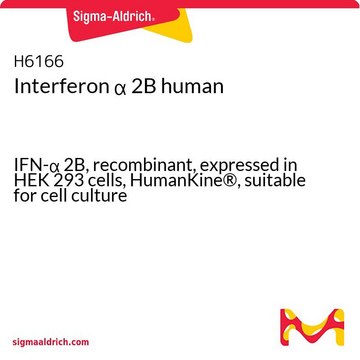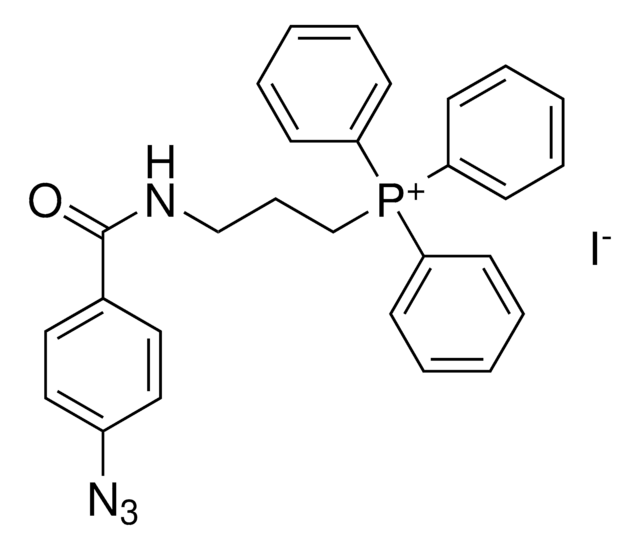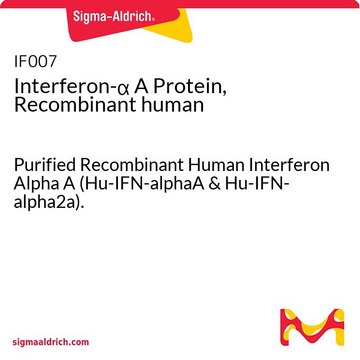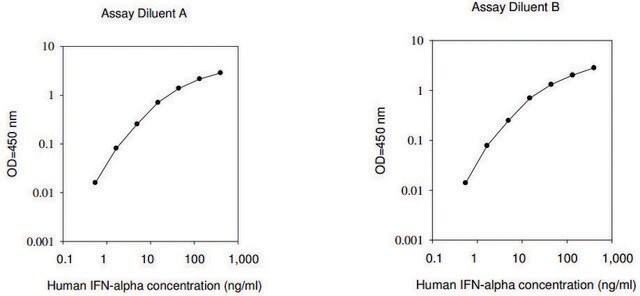SRP3061
IFN-omega human
recombinant, expressed in E. coli, ≥98% (SDS-PAGE), ≥98% (HPLC), suitable for cell culture
Synonim(y):
IFN alpha II-1, IFNW1, Interferon-alpha II-1, Interferon-omega
About This Item
Polecane produkty
pochodzenie biologiczne
human
rekombinowane
expressed in E. coli
Próba
≥98% (HPLC)
≥98% (SDS-PAGE)
Formularz
lyophilized
siła działania
≤0.01 ng/mL ED50
masa cząsteczkowa
19.9 kDa
opakowanie
pkg of 100 μg
metody
cell culture | mammalian: suitable
zanieczyszczenia
<0.1 EU/μg endotoxin, tested
kolor
white to off-white
numer dostępu UniProt
Warunki transportu
wet ice
temp. przechowywania
−20°C
informacje o genach
human ... IFNW1(3467)
Opis ogólny
Działania biochem./fizjol.
Sekwencja
Postać fizyczna
Rekonstytucja
Kod klasy składowania
11 - Combustible Solids
Klasa zagrożenia wodnego (WGK)
WGK 3
Temperatura zapłonu (°F)
Not applicable
Temperatura zapłonu (°C)
Not applicable
Wybierz jedną z najnowszych wersji:
Certyfikaty analizy (CoA)
Nie widzisz odpowiedniej wersji?
Jeśli potrzebujesz konkretnej wersji, możesz wyszukać konkretny certyfikat według numeru partii lub serii.
Masz już ten produkt?
Dokumenty związane z niedawno zakupionymi produktami zostały zamieszczone w Bibliotece dokumentów.
Nasz zespół naukowców ma doświadczenie we wszystkich obszarach badań, w tym w naukach przyrodniczych, materiałoznawstwie, syntezie chemicznej, chromatografii, analityce i wielu innych dziedzinach.
Skontaktuj się z zespołem ds. pomocy technicznej








